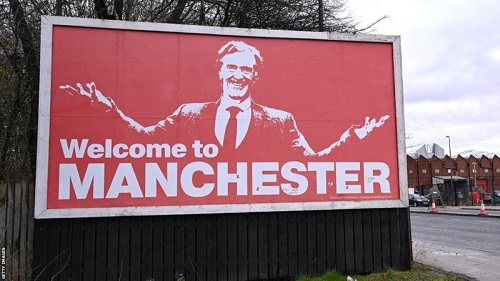British billionaire Sir Jim Ratcliffe has agreed to buy a 25% stake worth about £1.25bn in Manchester United.
As part of the deal, Ratcliffe's Ineos Group will take control of the club's football operations.
Ratcliffe, 71, will also provide $300m (£236m) for future investment into Old Trafford.
The announcement comes 13 months after the club's owners, the Glazer family, stated they were considering selling to "explore strategic alternatives".
The American family bought the club for £790m ($1.34bn) in 2005.
United have struggled on the pitch this season and have not won the Premier League since 2013, while there have been regular protests against the Glazer ownership.
Manchester-born Ratcliffe is chairman of petrochemicals company Ineos and says he is a "lifelong supporter of the club".
In a statement he said: "Whilst the commercial success of the club has ensured there have always been available funds to win trophies at the highest level, this potential has not been fully unlocked in recent times.
"We will bring the global knowledge, expertise and talent from the wider Ineos Sport group to help drive further improvement at the club, while also providing funds intended to enable future investment into Old Trafford
"We are here for the long term and recognise that a lot of challenges and hard work lie ahead, which we will approach with rigour, professionalism and passion. We are committed to working with everyone at the club - the board, staff, players and fans - to help drive the club forward.
"Our shared ambition is clear: we all want to see Manchester United back where we belong, at the very top of English, European and world football."
The club say the deal is "subject to customary regulatory approvals" but are "hopeful it will be completed as soon as possible".
BBC





